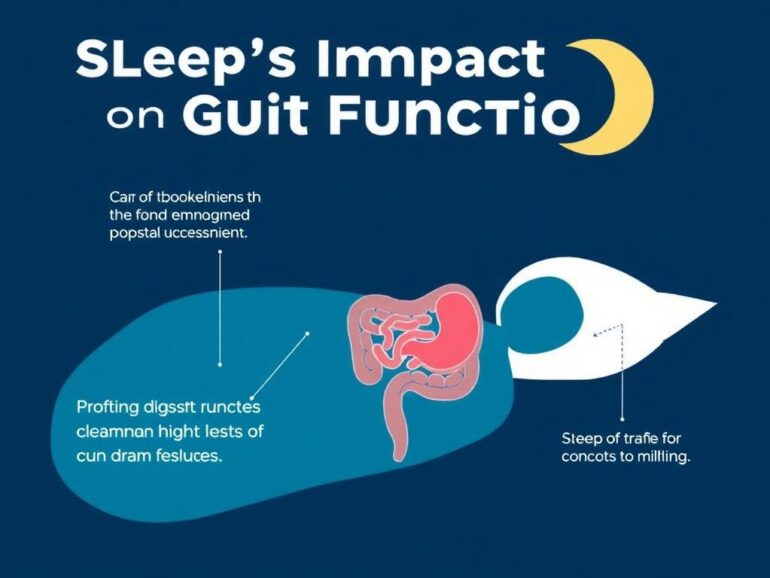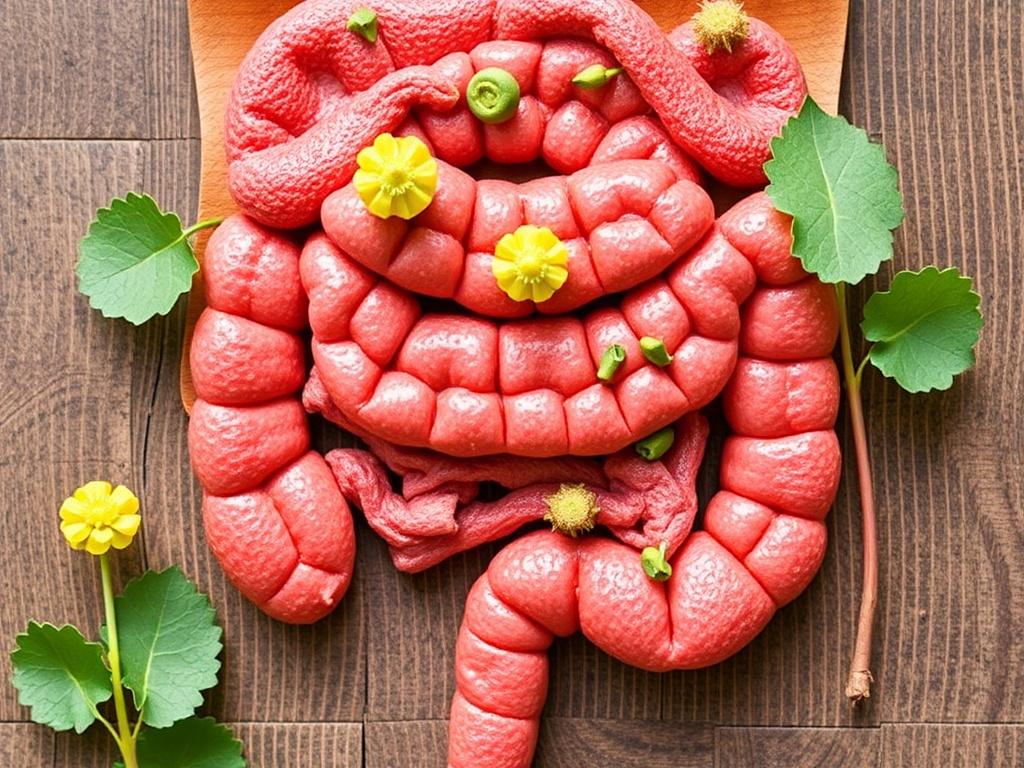Sleep is often celebrated as the cornerstone of good health, yet few realize just how deeply it influences the gut—the complex ecosystem responsible for digestion, nutrient absorption, and even immune defense. When we think about gut function, our minds typically leap to diet, probiotics, or stress management. However, emerging research reveals that sleep’s impact on gut function is equally significant, weaving into the delicate balance of our digestive system in surprising and profound ways. Whether you are struggling with bloating, irregular bowel movements, or more serious gastrointestinal disorders, understanding the role sleep plays can unlock new strategies for improving your overall health.
Let’s take a deep dive into the science behind sleep and gut health, exploring the mechanisms through which sleep affects digestion, microbiome composition, and inflammation. Along the way, we’ll highlight how various sleep disorders can exacerbate gut issues and offer practical tips to harness sleep as a secret weapon for a happier, healthier gut.
The Gut-Brain-Sleep Axis: A Symbiotic Relationship
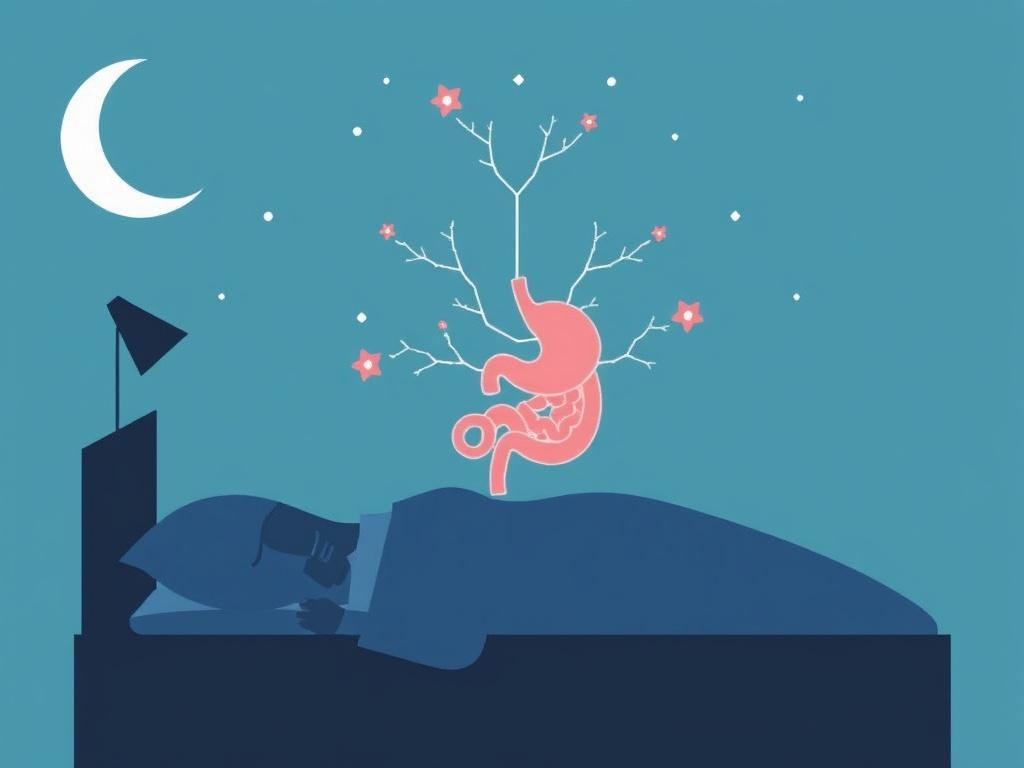
The human body is a marvel of interconnected systems, and the relationship between sleep and gut function exemplifies this beautifully. This connection is often referred to as the gut-brain axis, a bidirectional communication network linking the central nervous system and the enteric nervous system in the gut. When sleep is disrupted, this communication breaks down, leading to an impaired gut, and vice versa.
Sleeping well regulates the release of hormones like melatonin and cortisol, which affect not only sleep cycles but also gut motility and secretions. For example, melatonin, widely known as a sleep hormone, is also produced in the gut, where it aids in regulating intestinal movement and reducing inflammation. Cortisol, the stress hormone, can become elevated when sleep is poor, triggering gut permeability and potentially leading to “leaky gut,” where toxins and bacteria can escape the gut lining into the bloodstream.
How Sleep Quality Influences Digestive Rhythms
Our digestive system runs according to circadian rhythms—natural, internal processes that follow a roughly 24-hour cycle. These rhythms dictate not only when the body sleeps but also when the gut is most active in breaking down food, absorbing nutrients, and eliminating waste. When sleep is disrupted, so are these digestive rhythms, which can lead to various digestive dysfunctions.
A simple example is nighttime eating. Those who sleep poorly often find themselves awake late and snacking, which confuses the body’s digestive schedule. This nocturnal eating can disrupt the natural cycles of digestive enzymes and gut motility, resulting in poorer digestion, heartburn, and discomfort.
Sleep and the Microbiome: Friends or Foes?

The gut microbiome, composed of trillions of microorganisms, plays an indispensable role in digestion, immunity, and mental health. Sleep’s impact on gut function extends directly to this vital internal community. Studies show that insufficient or poor-quality sleep alters the composition and diversity of gut bacteria, which in turn may contribute to metabolic disorders such as obesity, diabetes, and inflammatory bowel disease (IBD).
| Sleep Factor | Effect on Gut Microbiome | Potential Health Outcome |
|---|---|---|
| Sleep Deprivation | Reduced bacterial diversity and growth of harmful bacteria | Increased inflammation, risk of obesity and metabolic syndrome |
| Poor Sleep Quality | Imbalance in Firmicutes and Bacteroidetes ratio | Digestive discomfort, altered metabolism |
| Consistent Healthy Sleep | Supports beneficial bacteria growth and microbiome balance | Improved gut barrier function and immune response |
An unhealthy microbiome caused by sleep disturbances may weaken the gut lining, promote inflammation, and impair digestion. Conversely, a well-balanced microbiome can promote better sleep, creating a beneficial cycle between restful nights and gut health.
Probiotics, Prebiotics, and Sleep
Adding to this complexity, probiotic and prebiotic foods can influence both gut health and sleep quality. These nutrients support the growth of beneficial bacteria, which produce neurotransmitters like serotonin—the precursor to melatonin—that regulate sleep-wake cycles. Including foods rich in fiber, fermented vegetables, yogurt, and kefir may not only soothe digestive issues but also contribute to more restorative sleep.
Sleep Disorders and Their Consequences for Gut Health
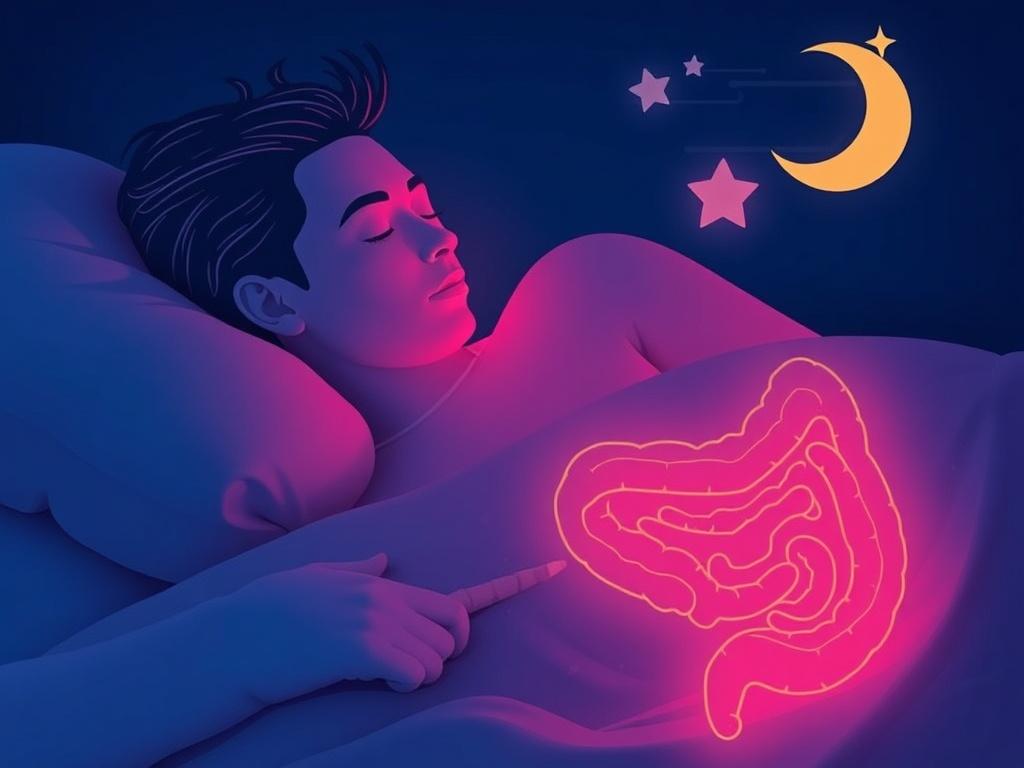
Sleep disorders such as insomnia, obstructive sleep apnea (OSA), and delayed sleep phase syndrome don’t just affect sleep duration or quality—they can had serious lasting effects on gut function.
Insomnia and Digestive Dysfunction
Chronic insomnia often leads to a hyperactive stress response, increasing cortisol levels that can impair gut barrier function and promote inflammation. This may exacerbate symptoms of irritable bowel syndrome (IBS), acid reflux, and other gastrointestinal complaints. Furthermore, insomnia often leads to poor eating habits, such as late-night snacking, which can worsen digestive symptoms.
Obstructive Sleep Apnea (OSA)
OSA, characterized by intermittent breathing disruptions during sleep, is linked with systemic inflammation and oxidative stress. These effects extend to the gut, showing increased intestinal permeability and microbiome dysbiosis. Individuals with OSA often report gastrointestinal complaints such as reflux and constipation, suggesting that treating the sleep disorder could help alleviate gut-related symptoms.
Table: Sleep Disorders and Gut Health Impacts
| Sleep Disorder | Gut Health Impact | Common Gut-Related Symptoms |
|---|---|---|
| Insomnia | Increased inflammation, disrupted gut barrier | IBS symptoms, acid reflux, bloating |
| Obstructive Sleep Apnea | Microbiome imbalance, intestinal permeability | GERD, constipation, abdominal discomfort |
| Delayed Sleep Phase Syndrome | Disrupted circadian rhythms, irregular digestion | Irregular bowel habits, indigestion |
Practical Tips to Improve Sleep and Gut Function
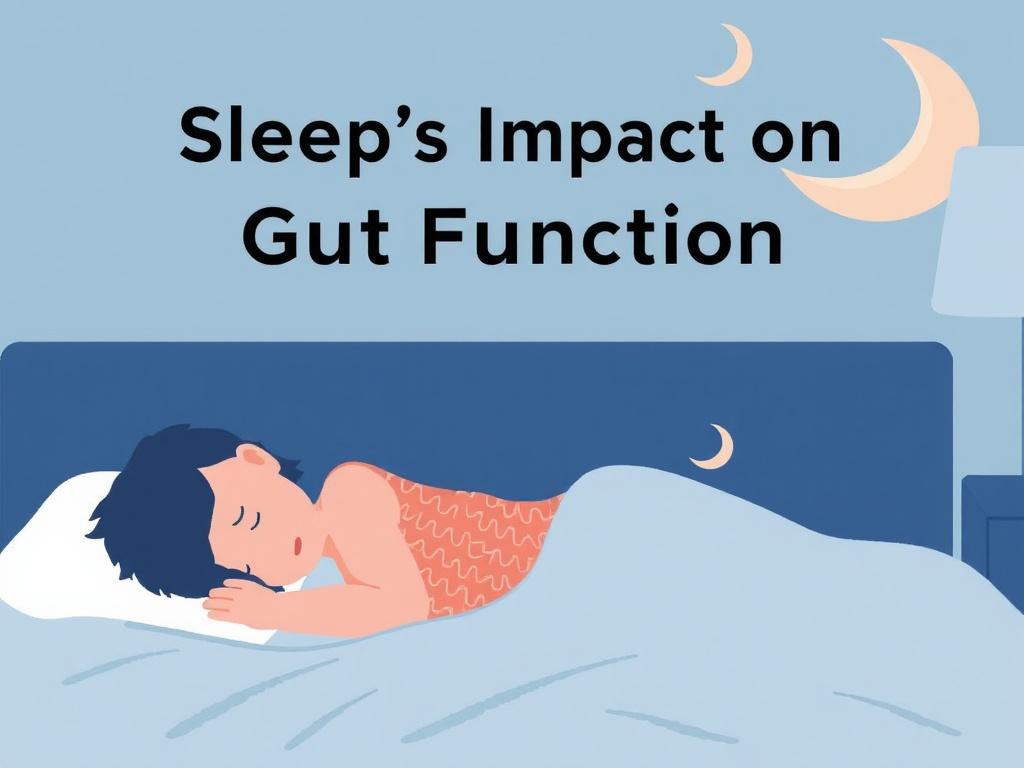
Given the clear link between sleep’s impact on gut function, how can you optimize your rest to support digestive health? Below are some actionable steps to consider:
- Maintain a consistent sleep schedule. Going to bed and waking up at the same time every day supports your body’s circadian rhythm, benefiting digestion and microbiome balance.
- Limit nighttime eating. Avoid heavy meals and snacks at least 2-3 hours before bedtime to allow your gut to rest and complete its digestive cycles.
- Create a sleep-friendly environment. Dark, cool, and quiet bedrooms promote deeper and more restorative sleep, reducing stress on the gut-brain axis.
- Incorporate prebiotic and probiotic foods. These nourish your gut microbiome and help produce sleep-regulating neurotransmitters.
- Manage stress. Practices such as meditation and deep breathing improve both sleep quality and digestive comfort.
- Address sleep disorders. If you suspect conditions like insomnia or sleep apnea, seek professional help as treating these can dramatically improve your gut health.
Sleep, Gut Function, and Overall Wellness: A Holistic View
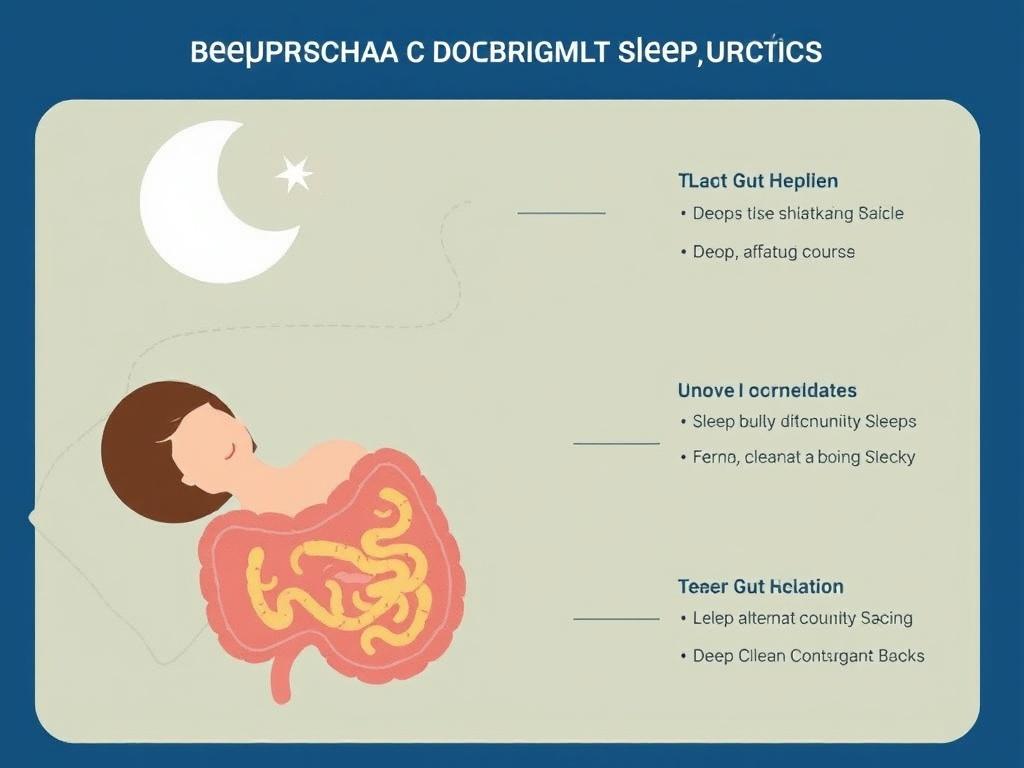
It’s important to recognize that sleep’s impact on gut function doesn’t operate in isolation. Gut health influences everything from mood and immune responses to metabolic health and energy levels. Likewise, sleep quality can affect mental health, which loops back into gut function through stress pathways.
By understanding this interconnectedness, we begin to appreciate sleep not just as downtime but as a vital period during which the gut performs essential restorative tasks. When sleep is disrupted, we inadvertently disrupt these tasks, setting off a cascade that can lead to digestive discomfort, inflammation, and impaired immunity.
How to Track Your Sleep and Digestive Health Together
Using sleep and digestion journals can be an effective way to uncover patterns and triggers. Record your sleep duration and quality alongside your gut symptoms, meals, and stress levels. Over time, this practice may reveal connections that help you tailor diet and lifestyle choices for better health.
There are also technology options such as wearable sleep trackers and gut health apps that can provide valuable insights—though nothing replaces listening to your body and consulting with healthcare professionals when necessary.
The Future of Research on Sleep and Gut Function
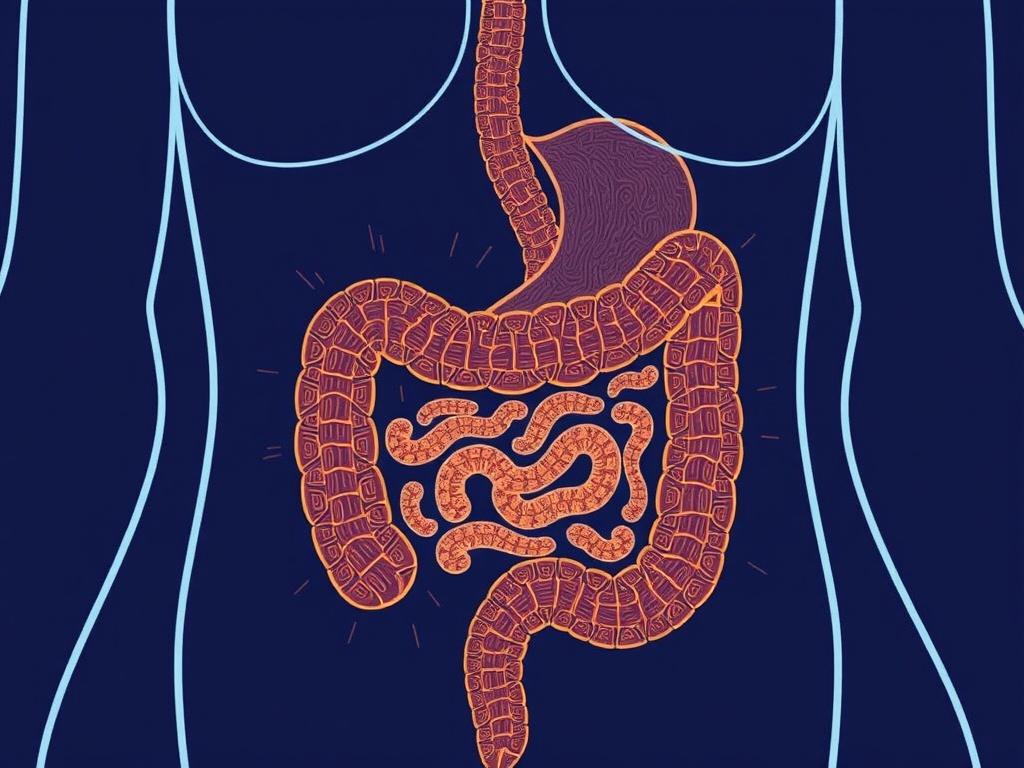
The evolving field of research on sleep’s impact on gut function brings hope for new therapies and lifestyle recommendations. Scientists are investigating how chronobiology—the study of biological rhythms—might be used to time meals and medication to optimize digestion and sleep concurrently.
Additionally, personalized medicine approaches taking individual microbiome profiles into account could enable tailored sleep interventions that improve gut function in patients suffering from gastrointestinal diseases.
What You Should Watch For
If you experience frequent digestive discomfort alongside poor sleep, it may be a sign your gut-brain-sleep axis is out of sync. Look out for:
- Persistent bloating or gas after eating
- Changes in bowel habits like constipation or diarrhea
- Chronic fatigue or daytime sleepiness
- Frequent waking during the night
- Acid reflux or heartburn
Consulting with a gastroenterologist or sleep specialist can help you address these issues comprehensively.
Summary Table: Key Points on Sleep’s Impact on Gut Function
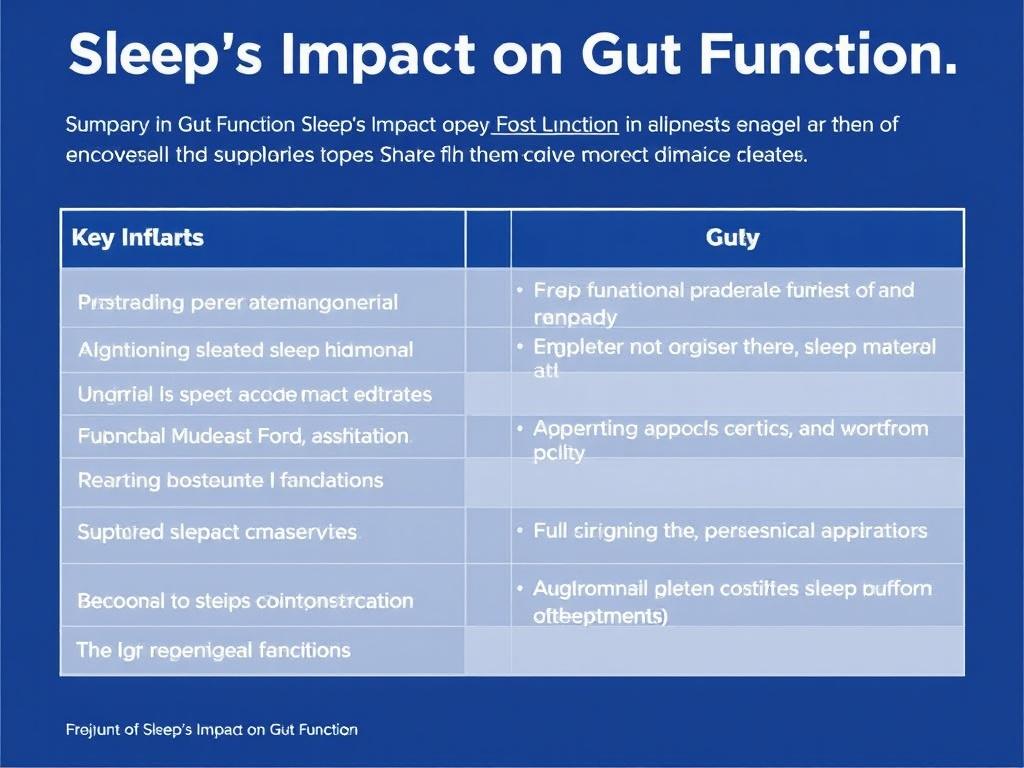
| Aspect | Impact | Advice |
|---|---|---|
| Circadian Rhythm | Regulates digestive enzyme release and gut motility | Keep consistent sleep/wake times, avoid late eating |
| Microbiome | Balanced sleep promotes healthy gut bacteria; poor sleep leads to dysbiosis | Include probiotics and prebiotics in diet, improve sleep quality |
| Inflammation | Sleep deprivation increases gut inflammation and permeability | Prioritize restorative sleep to support gut barrier function |
| Sleep Disorders | Exacerbate gut symptoms and impair digestion | Seek diagnosis and treatment for sleep issues |
Conclusion
Sleep’s impact on gut function is a crucial yet often overlooked aspect of holistic health. From regulating digestive rhythms and nurturing the microbiome to reducing inflammation and supporting immune pathways, restful sleep plays an integral role in keeping the gut functioning optimally. Conversely, poor sleep or sleep disorders can trigger or worsen gastrointestinal problems, creating a challenging cycle of discomfort and dysfunction. By recognizing and honoring the intimate connection between sleep and gut health, we empower ourselves to make lifestyle choices that foster better sleep and, in turn, better digestion and overall wellness. Prioritizing sleep isn’t just about feeling rested—it’s about laying the foundation for a healthy gut and a healthier life.
Читайте далее: